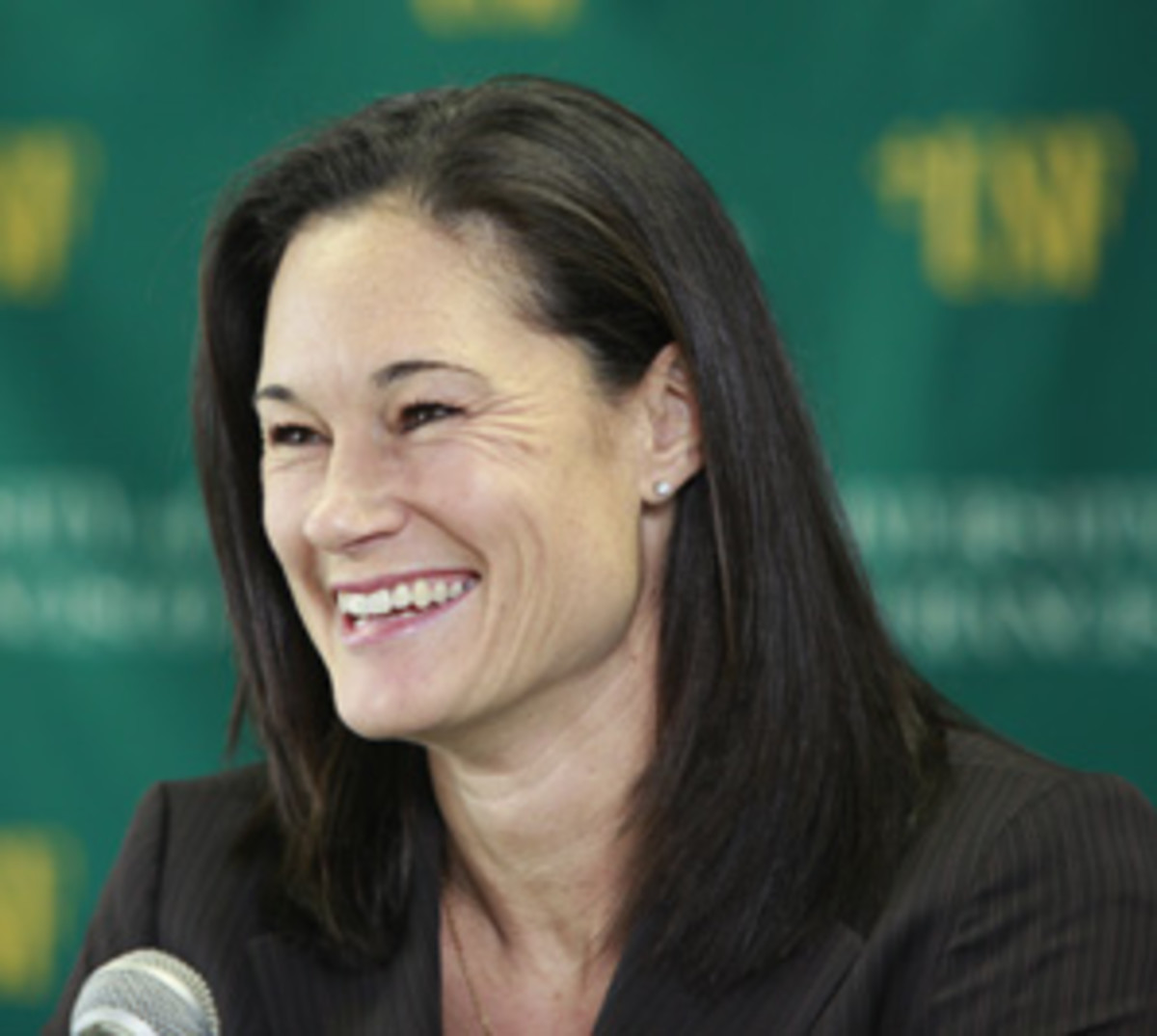
Former Olympian Jennifer Azzi in an unlikely spot -- coaching USF
Jennifer Azzi is sitting at her desk in a stripped-down office that she never dreamed of occupying just a few weeks ago. She has three to-do lists going and a giant NCAA compliance manual in front of her.
"Life has changed a lot," she said.
Azzi hasn't taken a conventional route to the women's basketball head coaching job at the University of San Francisco. A former Olympic gold medalist, collegiate player of the year while at Stanford and a member of the women's basketball Hall of Fame, Azzi has never been an assistant coach. Her coaching experience consists of running her summer camps.
But, as a member of the generation that pushed women's sports to new heights, Azzi had other things to do. "If you look at my history, I couldn't have planned to coach right out of school, because I had other opportunities," she said.
Azzi, 41, had the opportunity to play in Europe. To play with the 1996 Olympic team. To help launch a new women's league -- the ABL. To play in the WNBA. And when her playing days were over in 2004, she had the chance to work for sponsors, to be sought after as a motivational speaker, to travel the world as an ambassador for the NBA.
"My career evolved with opportunity," she said.
This spring, another opportunity arrived. She ran into the athletic director at the University of San Francisco, Debi Gore-Mann, at a banquet. Gore-Mann -- who knew Azzi from her Stanford days -- had recently fired her women's basketball coach. When they chatted about the opening at the downtrodden program, something clicked for Azzi.
A Division I job, just 10 miles from her home in Mill Valley. A program with something to sell: great city, great education, intimate campus. And nowhere to go but up -- USF won just one conference game last season.
"It just feels like the right time and the right opportunity," Azzi said. "At this phase in my life, I've seen the world. There's so much I've done as an individual person. But now it's time to get back to my roots, which are basketball.
"While it's nice to be an Olympian, to have the Hall of Fame thing, nice that someone will pay me to go speak or endorse something -- that's all based on something that I did.
"This is something I'm doing."
A late hire, Azzi has been busy. She put together a staff that includes her former Stanford teammate Katy Steding, who has spent the last decade coaching, including at NAIA Warner Pacific. She has buckled down to study her compliance manual. She has tried to get to know her players in the small window of time available -- once the window shuts she can't work with her players until fall.
And she has turned to plenty of people for advice. From South Carolina coach Dawn Staley -- her former Olympic teammate who successfully made the leap to head coach -- to Stanford's Tara VanDerveer, her mentor down the road.
"I'm excited for her," VanDerveer said. "I think USF is really fortunate to have her associated with the university."
VanDerveer and Azzi have remained close over the years, but VanDerveer never expected Azzi to pursue coaching.
"She has so many other things going on," VanDerveer said. "And I think for a lot of women athletes, coaching is almost an afterthought. They want to prove themselves in other things. But it takes a coming back to basketball. It's a fun job. I hope there's a positive shift for women to be coaches.
"Jennifer loves a challenge. She's fearless. She's genuine. And I think she'll be a great recruiter."
The last point is key. What Azzi needs to find is what VanDerveer found in Oak Ridge, Tenn., 24 years ago: a kid who can change her program. VanDerveer brought Azzi to Stanford to play point guard. In 1988, she sat a frustrated Azzi down in the empty bleachers at Maples Pavilion and asked her to envision the place full, championship banners hanging from the rafters. By 1990, that vision had come true.
"I know what the possibility is," Azzi said. "I know it takes time."
Azzi may face the problem many great players experience when they attempt to coach: frustration. Azzi was the first one into the gym and the last one to leave as a player. She worked hard as a pro and remains a chiseled physical specimen, who demands a lot of herself.
"I'm sure there are things that are going to be frustrating," she said. "I'd like everyone to stay in the gym a little longer, run a little extra. But I've already been impressed with their willingness to do what it takes."
And as part of the generation of women athletes who saw how far hard work could take them, Azzi sees limitless potential.
"Whatever I ask them to do," she said. "I've been there and done that. I know what's possible."





